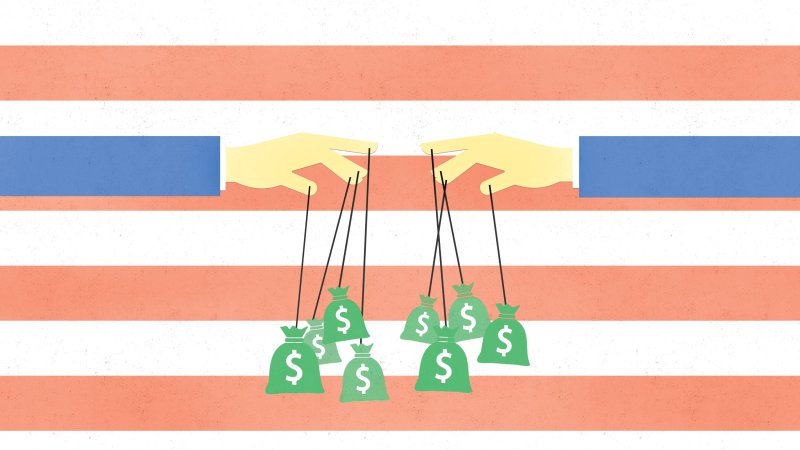Last week, I discussed that startups are slowly disappearing. The overwhelming question I received from readers was: Why are startups disappearing?
Here are the six main reasons.
1. Rising student debt: The Brookings Institute reports that the rate of those starting businesses with a bachelor’s degree or higher has fallen in half – from about 4% in 1992 to barely more than 2% in 2017. Starting a business with a $50,000 student loan can screw up the whole thing. Forbes recently reported that 44.2 million Americans have student loan debt and calls it “a $1.5 trillion crisis.”
State governments and university boards and administrators are failing us when it comes to the student debt crisis. According to the American Council on Education, state funding for higher education decreased 40.2% from 1980 to 2011, and this trend is not improving. And, during the same time, incredibly, universities have been jacking up tuition to build fancier campuses and winning sports teams – all the while non-teaching staff are paying themselves big bucks. This has to stop.
2. Rising healthcare costs: This one is a real killer. In January, I explained in my 1-Minute Rant, “Health Insurance Costs are Killing Startups” how a friend wanted to start her own company but had to rule it out because health insurance costs are too high. This is happening every day. It’s tough to start a business when healthcare costs alone are $30,000 per year for a family. Our elected officials need to get to work on this one.
3. The lack of a “business ownership” mentality: I cringe when people say, “You don’t need to start a business to be entrepreneurial.” What is that? Entrepreneurship is starting a company and nothing else. The Atlantic’s, “The Myth of the Millennial Entrepreneur” points out that millennials consider entrepreneurship a mentality – not an activity. That’s a scary proposition. Private ownership is the lifeblood of capitalism. Today, young people have so much support from entrepreneurial “centers” at universities, startup incubators, and other resources that people didn’t have access to 20 years ago, so there shouldn’t be an excuse. The younger generation needs to get busy starting and owning their own businesses because as of today, their segment isn’t about starting.
4. More power at the top: According to the Census Bureau, the market share for the top four firms has risen from about 22% in 1997 to about 31% in 2012. For example, before the 2008 financial crisis, about 100 new banks were starting each year, but between 2010 and mid-2015, only three banks started. The past few years haven’t improved either. The biggest banks such as Citigroup, JP Morgan Chase, and Bank of America have become much bigger. Why? One reason is that the financial crisis resulted in a huge increase in bank regulations. Who benefited the most? The biggest banks that created the crisis but were bailed out. That’s how America works these days, and it’s crushing entrepreneurship. If only we had allowed the weaker, larger banks to fail, then stronger, smarter banks would have started. Banks are just one example – most other industries have become more consolidated.
5. State subsidies and rigged systems: The Brookings Institute reports that state subsidies for existing businesses have tripled since 1990. R&D tax credits, free job training, job creation tax credits, industrial revenue bonds, tax-free financing arrangements, and property tax abatements all manipulate the economy to help big businesses, not startups. For example, my startup Vertical IQ with 20 employees tried to apply for R&D tax credits, but the expenses associated with the application clearly outweigh any benefit we’d get. But the credits are worth the trouble for larger companies. There you go – a rigged system. Where’s the outrage?
6. Increase in occupational licensing: Licenses also rig the economic system. A recent Harvard Business Review article reports that in the 1950s, 5% of U.S. workers had an occupational license; today the BLS estimates 23% need one. The primary benefit to licenses is helping big, existing companies to keep out the innovative competitors – all under the guise of protecting the consumer.
So, there you have it. This lack of entrepreneurship is a bad trend. Please spread the word and elect officials who will commit to doing something right in terms of support.
[1]https://www.forbes.com/sites/zackfriedman/2018/06/13/student-loan-debt-statistics-2018/#122fc2117310 [1]http://www.acenet.edu/the-presidency/columns-and-features/Pages/state-funding-a-race-to-the-bottom.aspx [1]https://www.brookings.edu/research/the-state-of-competition-and-dynamism-facts-about-concentration-start-ups-and-related-policies/?utm_medium=social&utm_source=twitter&utm_campaign=es
Sign up to get more great insights directly to your inbox.
As a special bonus, you'll also immediately get access to my inside analysis of what made 172 diverse companies achieve take-off revenue growth.

